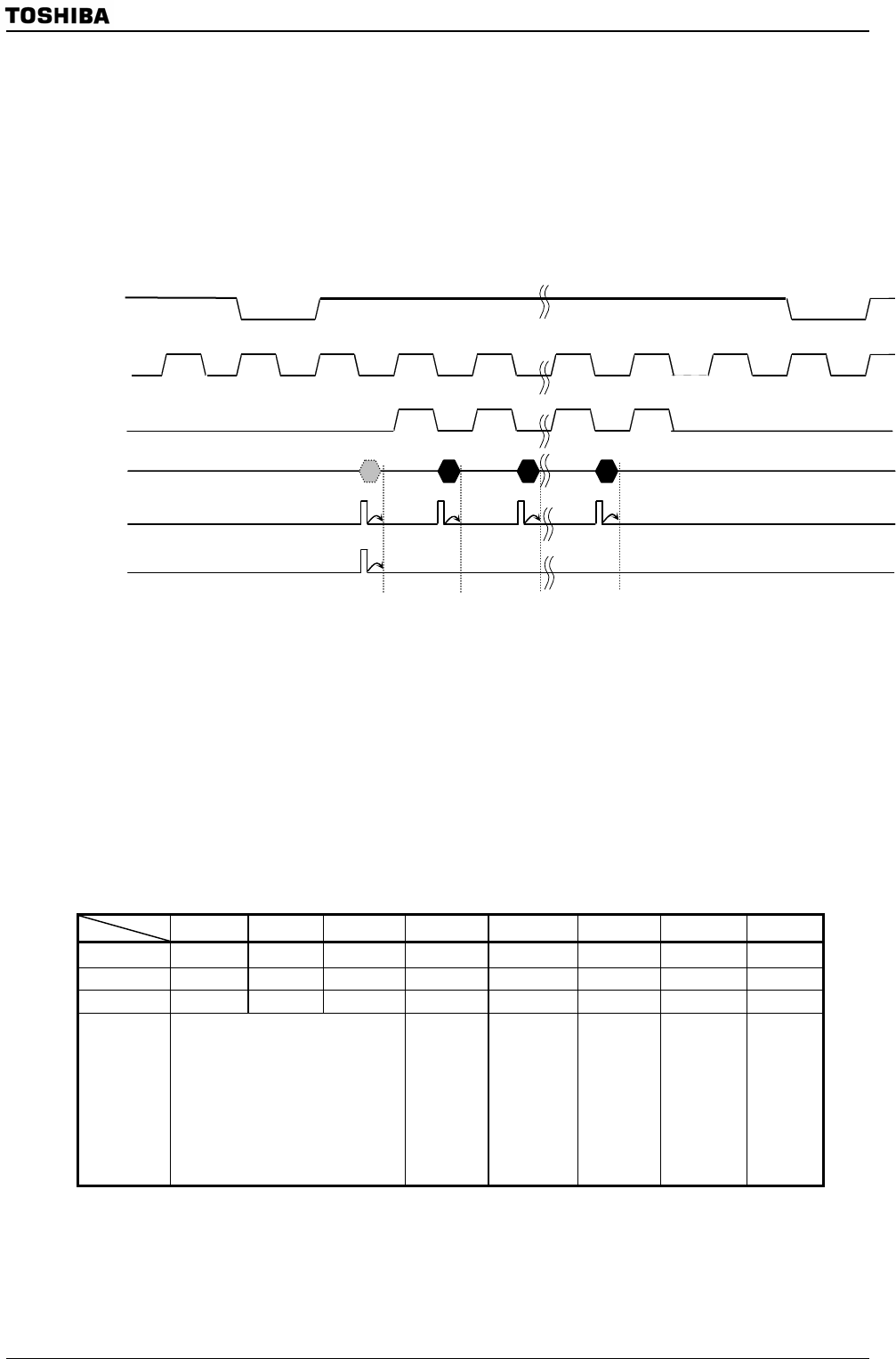
TMP92CZ26A
92CZ26A-552
3.19.4 Interrupt Function
The LCDC has two types of interrupts.
One is generated synchronous with the LLOAD signal and the other is generated
synchronous with the LLOAD signal that is output immediately after the LVSYNC
signal.
LCDMODE1<INTMODE> is used to switch between these two types of interrupts.
When LCDMODE1<INTMODE>=0, an interrupt request is generated at the start of
each VRAM read before the LLOAD generates (once in each LLOAD period).
When LCDMODE1<INTMODE>=1, an interrupt request is generated at the start of
VRAM read before the first LLOAD generates (once in each LVSYNC period).
**The interrupt request generates when reading the data from VRAM at once. Since
reading from VRAM is executed by DMA with bus request to the CPU, DMA operation
is given priority. Thus CPU accepts interrupt immediately after reading the data from
VRAM.
LCDMODE1 Register
7 6 5 4 3 2 1 0
bit Symbol LDC2 LDC1 LDC0 LDINV AUTOINV INTMODE FREDGE SCPW2
Read/Write R/W R/W R/W R/W R/W R/W W W
After reset 0 0 0 0 0 0 0 0
Function
Data rotation function
(Supported for 64K-color: 16 bps
only)
000: Normal 100: 90-degree
001: Horizontal flip 101: Reserved
010: Vertical flip 110: Reserved
011: Vertical & 111: Reserved
horizontal flip
LD bus
inversion
0: Normal
1: Invert
Auto bus
inversion
0: Disable
1: Enable
(Valid only
for TFT)
Interrupt
selection
0:LLOAD
1:LVSYNC
LFR edge
0: LHSYNC
Front Edge
1:LHSYNC
Rear Edge
LD bus
Trance
Speed
0: normal
1: 1/3
Note: The LCDMODE1<INTMODE> setting must not be changed while the LCDC is operating. Be sure to set
LCDCTL0<START> to “0” to stop the LCDC operation before changing the interrupt setting.
LVSYNC
LHSYNC
LLOAD
D15-0(VRAM Read)
Interrupt request
LCDMODE1<INTMODE>=0
Interrupt request
LCDMODE1<INTMODE>=1
LCDMODE1
(
0281H
)


















